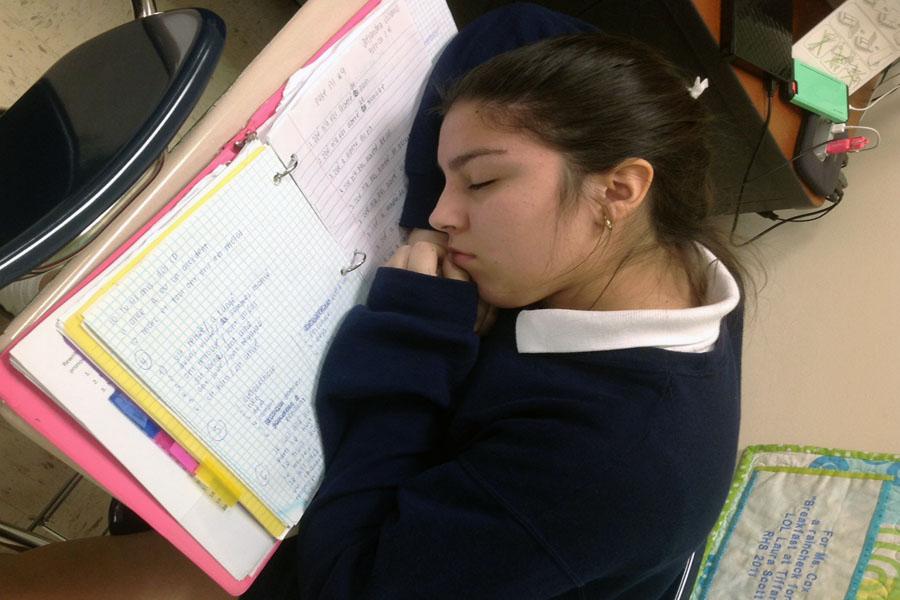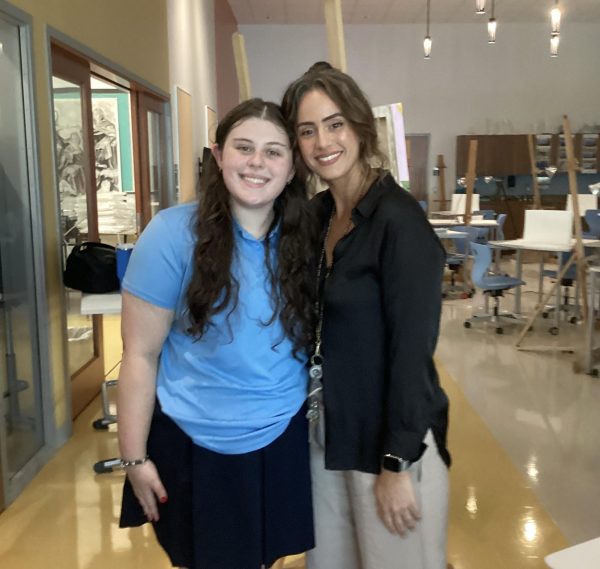Sleep deprivation, changing students A’s into zzzz’s
With heavy eyelids and strong headaches, students find it hard to keep themselves awake in first set.
It is 8:00 am, you are running on five hours of sleep and do not remember anything you stayed up all night working on. While in your first class, you can see the teacher mentioning what will be on the next test, but you can barely keep your eyes open. You end up falling asleep and miss all the information given in class. Not only do you not remember the information you were forcing your brain to absorb late at night, now you need to catch up on the lesson you missed during class.
According to the National Sleep Foundation, teenagers need minimum eight and a half hours of sleep to be prepared for the day. They also reported that only fifteen percent of students get eight and a half hours of sleep every night.
How is the student who is currently a walking zombie supposed to take a math test first period? Sleep deprivation is also proved to alter students mood and make them more susceptible to irritation. For students who drive, sleepiness can be a huge risk on the road. Closing your eyes for a quick second at the stoplight might result in a car accident.
Lack of sleep may alter students’ academic performance, physical growth, and emotional stability. Sleep deprivation is associated as well with high blood pressure, risk of heart attacks, heart failure, stroke, obesity and psychiatric problems.
Sophomore Jessica Villa says that she loves sleeping and wishes she could get more hours of sleep. “I know that I need more hours of sleep, but homework, chores, and studying keep me up later than I would like.”
Giorgia Flanagan only receives “up to four or five hours, six if [she is] lucky. There have been times where [she] had to pull all-nighters in order to finish all [her] work.”
As students continue their high school career, the work load only grows heavier. Not only do they have to make time for homework and sports, but also for volunteering, tutoring, and extra curricular activities. Often this leaves very little time left for socializing or family time.This can lead to more stress for students.
It is up to the student to choose between sleeping or finishing their work. Some of them have sports or live far from school, so they arrive home late at night. With all the work they have due, how can they include family time? When the time it takes to get home, change out of uniform, eat dinner and do homework are put together, there is not much time left for sleep.
Rebecca Parrillo assures that she would rather sacrifice her sleep in order to get a good grade. “I know it’s not healthy, but I can’t just go to sleep and not have my work done. It stresses me out and gives me tons of anxiety.”
Students should really maintain their priorities and not procrastinate in their work so that they can go to bed early. It is hard to choose math homework over Grey’s Anatomy, but a good night’s sleep will have better results in the long run than knowing what happens to April and Jackson.

Alejandra Lozano is a senior at the Academy, a fourth year journalist, and an Editor-in-Chief of the Achona. Her favorite subject is AP Lit and some of...








